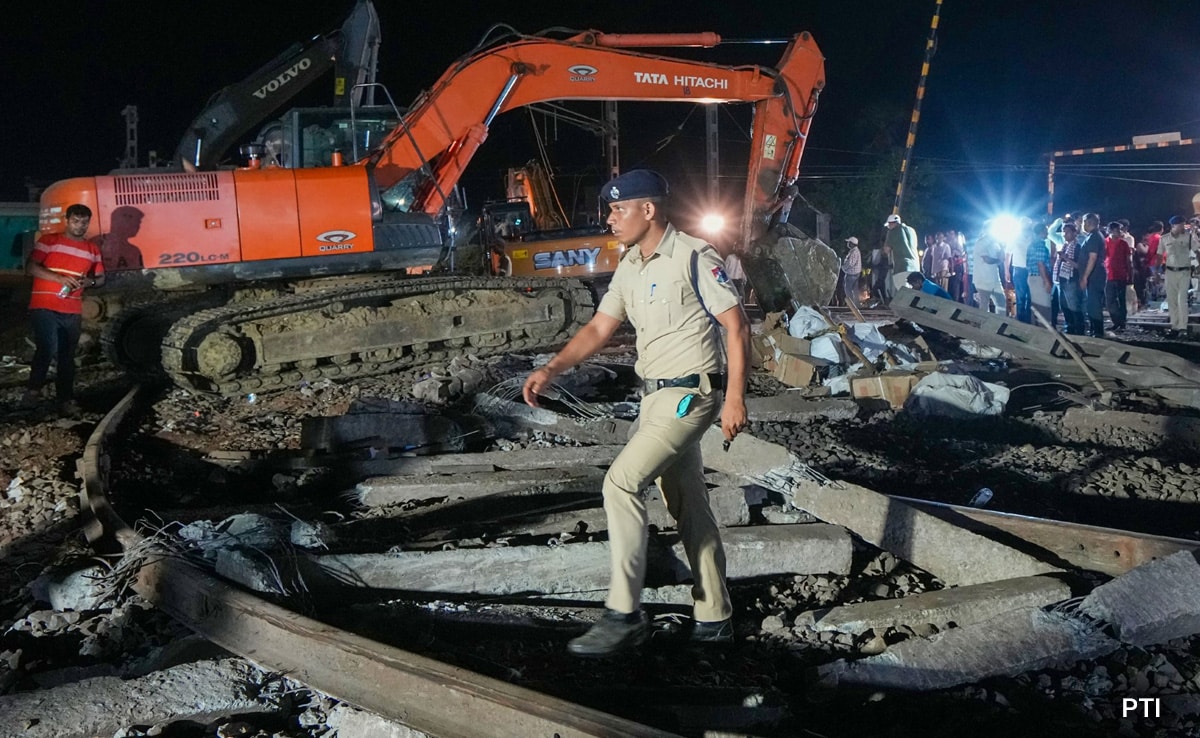Odisha Train Accident: The Indian Railways has said the reaction time was very less at such a high speed.
New Delhi:
While Railway Minister Ashwini Vaishnaw today said the “root cause” of the horrific triple train collision in Odisha’s Balasore, which claimed 288 lives and injured over 1,000 people, has been identified and will be revealed soon in a report, critics have pointed to an audit report of the railways from September last year, which flagged lapses in rail safety. The accident happened due to a change in “electronic interlocking”, Mr Vaishnaw has said. The Railway Board has also detailed the sequence of events leading to the crash.
India’s top auditing body, the Comptroller and Auditor General of India, in a 2022 report on derailments in Indian Railways sought to find out whether measures to prevent derailments and collisions were clearly laid down and implemented by the rail ministry.
“There were shortfalls ranging from 30-100 per cent in inspections by Track Recording Cars required to assess geometrical and structural conditions of railway tracks,” it said.
From April 2017 to March 2021, 422 derailments were attributable to the ‘Engineering Department’. The major factor responsible for derailment was related to the ‘maintenance of track’ (171 cases), followed by ‘deviation of track parameters beyond permissible limits’ (156 cases), the report said, adding that ‘bad driving/over speeding’ was the major factor responsible for derailments.
The number of accidents attributable to the ‘Operating Department’ was 275. ‘Incorrect setting of points and other mistakes in shunting operations’ accounted for 84 per cent, the CAG found.
The ‘inquiry reports’ were not submitted to the accepting authority within the prescribed time schedule in 63 per cent of cases and in 49 per cent of cases, there was a delay in the acceptance of the reports by accepting authorities, it said.
The report said overall expenditure on priority tasks from the Rashtriya Rail Sanraksha Kosh — a reserve fund that received a corpus of Rs 1 lakh crore over five years starting from 2017-18 — showed a declining trend. The allotment of funds for track renewal works declined, funds allocated to track renewal works were also not fully utilised.
“Out of 1,127 derailments during 2017-21, 289 derailments (26 per cent) were linked to track renewals,” the CAG report said.
Out of 2,908 manned level crossings (nine per cent) targeted for elimination during 2018-21, only 2,059 (70 per cent) level crossings were eliminated, it said.
The CAG recommended Railways ensure strict adherence to the scheduled timelines for conducting and finalisation of accident inquiries and develop a strong monitoring mechanism to ensure timely implementation of maintenance activities by adopting fully mechanised methods of track maintenance and improved technologies.


